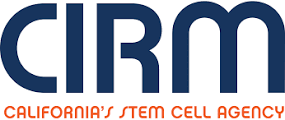
The Dean’s Translational Medicine Seminar Series wrapped up its spring season on May 20 with a visit from Alan O. Trounson, president of the California Institute for Regenerative Medicine (CIRM). Trounson, a pioneer in the field of stem cell research, updated the Keck community on the progress the science is making from the bench to the bedside.
Trounson was introduced by Martin Pera, director of the Eli and Edythe Broad Center for Regenerative Medicine and Stem Cell Research at USC. Pera will be leaving in June to return to Australia, where he will be chair of stem cell science at the University of Melbourne, and the scientific leader of Stem Cells Australia.
“Alan’s main priority has always been doing research that matters to people, and I think he’s been very successful in that. ” Pera said of his by long-time colleague and friend. Trounson explained that translating stem cell research to clinical practice is critical to further funding of CIRM. He said it is important for the people of California who voted for Prop. 71 to see a return on the $3 billion investment.
“I’m a basic scientist and I love basic science, but I want to get this stuff to the clinics so we get another chance to extend the program,” said Trounson, who went on to show how CIRM is globalizing the endeavor by establishing partnerships with researchers around the world.
The CIRM translational portfolio includes 43 grants for early translation and disease teams. Trounson said disease teams working on diabetes and macular degeneration are on the frontline of getting into the clinic because of the low risk of rejection of embryonic stem cells at implantation sites.
Pluripotent stem cells are targets for natural killer cells, and that’s a major roadblock for translational success, according to Trounson. He encouraged immunologists to join in the push to address this tolerance issue.
Despite the challenges facing researchers, there have been encouraging breakthroughs in recent months. Trounson mentioned the patient in Berlin who has, by all indications, been cured of HIV by receiving mutated CCR5 donor genes discovered in east African prostitutes who were exposed but never contracted the deadly disease.
Trounson hopes to establish alpha stem cell clinics across California. These clinics will initially serve to get patients into clinical trials or to offer sound advice to individuals who might otherwise go overseas to receive harmful stem cell therapies from disreputable clinics.
“I’m willing to invest money to get these [clinics] up,” Trounson said. “I think if nothing happens beyond 2017 and we don’t get any refunding, we can leave a footprint of stem cell clinics in California that will go on forever.”
